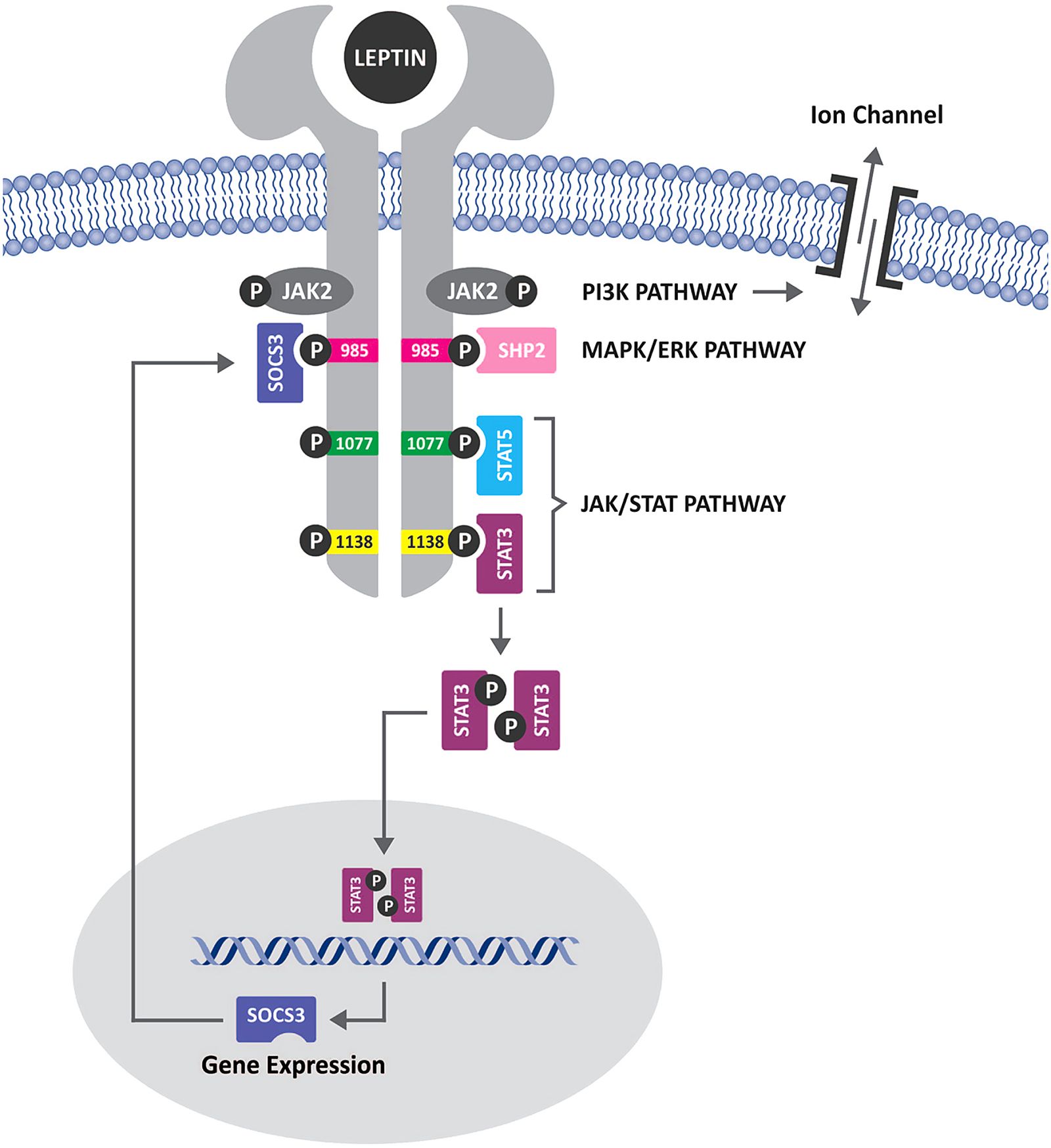Leptin resistance is a complex issue, but it’s not impossible to overcome. By understanding the underlying causes and adopting a holistic approach, you can regain control over your body’s natural weight management system and improve your overall health. This article will explore how to fix leptin resistance by focusing on lifestyle modifications such as prioritizing sleep, managing stress, and adopting an anti-inflammatory diet. Remember, consistency is key, and with patience and dedication, you can achieve your weight loss goals.
Understanding Leptin Resistance
The Role of Leptin
Leptin is a powerful hormone produced by fat cells that plays a crucial role in regulating appetite, metabolism, and energy balance. It acts as a messenger, carrying information from fat cells to the brain about your energy stores. When leptin levels are high, it signals to the brain that your body is well-fueled, suppressing hunger. However, when leptin resistance occurs, the brain becomes less responsive to these signals, leading to persistent feelings of hunger and difficulty losing weight.

The Science Behind Leptin Resistance
Imagine leptin as a key that unlocks a receptor in the brain. With resistance, the key is worn down and doesn’t fit as well, leading to a weaker signal. This disrupts the normal feedback loop of hunger regulation, making it challenging for the brain to accurately interpret leptin’s messages. As a result, the body may continue to feel hungry and crave high-calorie foods, even after consuming adequate calories.
Causes of Leptin Resistance
Several factors can contribute to the development of leptin resistance:
- Chronic Inflammation: Conditions like autoimmune diseases, gut dysbiosis, and chronic stress can trigger inflammatory processes that interfere with leptin signaling.
- Stress: Elevated cortisol levels due to chronic stress can directly impair leptin sensitivity, leading to increased hunger and cravings.
- Poor Sleep: Sleep deprivation has been linked to lower leptin levels and higher ghrelin (the hunger hormone), disrupting the body’s natural appetite regulation.
- Unhealthy Diet: A diet high in processed foods, sugary drinks, and unhealthy fats can promote inflammation and exacerbate leptin resistance.
Recognizing the Symptoms of Leptin Resistance
Common Symptoms
- Persistent Hunger and Cravings: Leptin resistance can lead to increased cravings for high-calorie, sugary foods, even after eating a meal. These cravings can be difficult to resist, contributing to overeating and weight gain.
- Difficulty Losing Weight: Individuals with leptin resistance often find it harder to lose weight, even with a calorie-restricted diet and regular exercise, due to the body’s hormonal response.
- Weight Regain: Rapid weight regain after losing weight is a common experience for those with leptin resistance, as the body’s hormonal system struggles to maintain the new, lower weight.
- Increased Abdominal Fat: Leptin resistance is often linked to a higher accumulation of fat around the midsection, which can be particularly stubborn to lose.
- Metabolic Issues: Leptin resistance can contribute to other metabolic problems, such as high triglyceride levels and blood pressure.
- Fatigue and Low Energy: Disruptions in leptin signaling can lead to feelings of tiredness and low energy.

How to Fix Leptin Resistance
Optimize Your Sleep
Quality sleep is essential for regulating leptin levels and enhancing sensitivity. Aim for 7-9 hours of uninterrupted sleep each night. Make sure your bedroom is cool, dark, and quiet to promote restful sleep. Research has shown that individuals who slept less than 6 hours per night had significantly lower leptin levels and higher ghrelin levels (the hunger hormone) compared to those who slept 7-8 hours.
Manage Stress Effectively
Stress can wreak havoc on our hormonal balance, including leptin. “Stress can disrupt the delicate balance of our hormones, including leptin. Finding effective ways to manage stress is crucial for improving leptin sensitivity,” says Dr. Jane Doe, a renowned endocrinologist. Practice mindfulness meditation for 10-15 minutes daily to calm your mind and reduce stress.
Adopt an Anti-Inflammatory Diet
Eating an anti-inflammatory diet is crucial for repairing leptin resistance. Incorporate more fruits, vegetables, lean proteins, and omega-3-rich foods, while limiting processed meats, sugary drinks, and unhealthy fats. Sarah, a 35-year-old woman who struggled with weight loss, found significant improvement after adopting an anti-inflammatory diet. She eliminated processed foods and sugary drinks and incorporated more anti-inflammatory foods. Within six months, she lost 15 pounds and experienced a noticeable decrease in her cravings.
Incorporate Intermittent Fasting
Intermittent fasting can be a helpful strategy for improving leptin sensitivity. Start with a shorter fasting window, such as 12 hours, and gradually increase it as you become more comfortable. However, it’s important to consult with a healthcare professional before starting any fasting regimen, as it may not be suitable for everyone, especially those with underlying health conditions.
Engage in Regular Exercise
Regular exercise, particularly high-intensity interval training (HIIT), can improve leptin sensitivity and reduce body fat percentage. Include strength training exercises at least twice a week to build muscle mass and boost your metabolism. A study published in the “Journal of Clinical Endocrinology and Metabolism” found that regular exercise, especially HIIT, can significantly enhance leptin sensitivity and promote fat loss.

Supporting Your Leptin Resistance Reversal
Supplementation
Certain supplements, such as omega-3 fatty acids, vitamin D, and probiotics, may help reduce inflammation and support leptin sensitivity. Consult with a healthcare professional before starting any new supplement regimen to ensure it’s appropriate for your individual needs. Remember, supplements should not replace a healthy diet and lifestyle changes.
Functional Medicine Approach
Functional medicine practitioners can help identify and address the root causes of leptin resistance, such as gut health issues, hormonal imbalances, and food sensitivities. “Functional medicine focuses on understanding the body as a whole system, rather than just treating symptoms. This approach can be particularly helpful for addressing complex conditions like leptin resistance,” says Dr. Jane Doe, a leading functional medicine practitioner.
Seek Professional Guidance
A registered dietitian can provide personalized meal plans and dietary recommendations to help you adopt an anti-inflammatory diet. While professional guidance is valuable, it’s important to remember that you are ultimately responsible for your health and well-being. Take ownership of your journey and actively participate in your treatment plan.
Emerging Technologies
Wearable fitness trackers and apps can be valuable tools in managing leptin resistance. These technologies can help monitor your sleep, stress levels, and dietary intake, providing valuable insights to support your lifestyle changes.
Current Research
Ongoing research on leptin resistance is exploring new avenues for treatment and potential therapies. Scientists are investigating the role of gut microbiome, epigenetics, and novel pharmacological interventions in addressing this complex condition.
Conclusion
Leptin resistance is a multifaceted challenge, but it’s not an insurmountable one. By understanding the underlying mechanisms and adopting a comprehensive approach, you can regain control over your body’s natural weight management system and unlock your full potential for health and well-being. Start by making small, sustainable changes to your lifestyle, such as prioritizing sleep, managing stress, and embracing an anti-inflammatory diet. Remember, consistency is key, and with patience, dedication, and the right support, you can overcome leptin resistance and achieve your weight loss goals.
